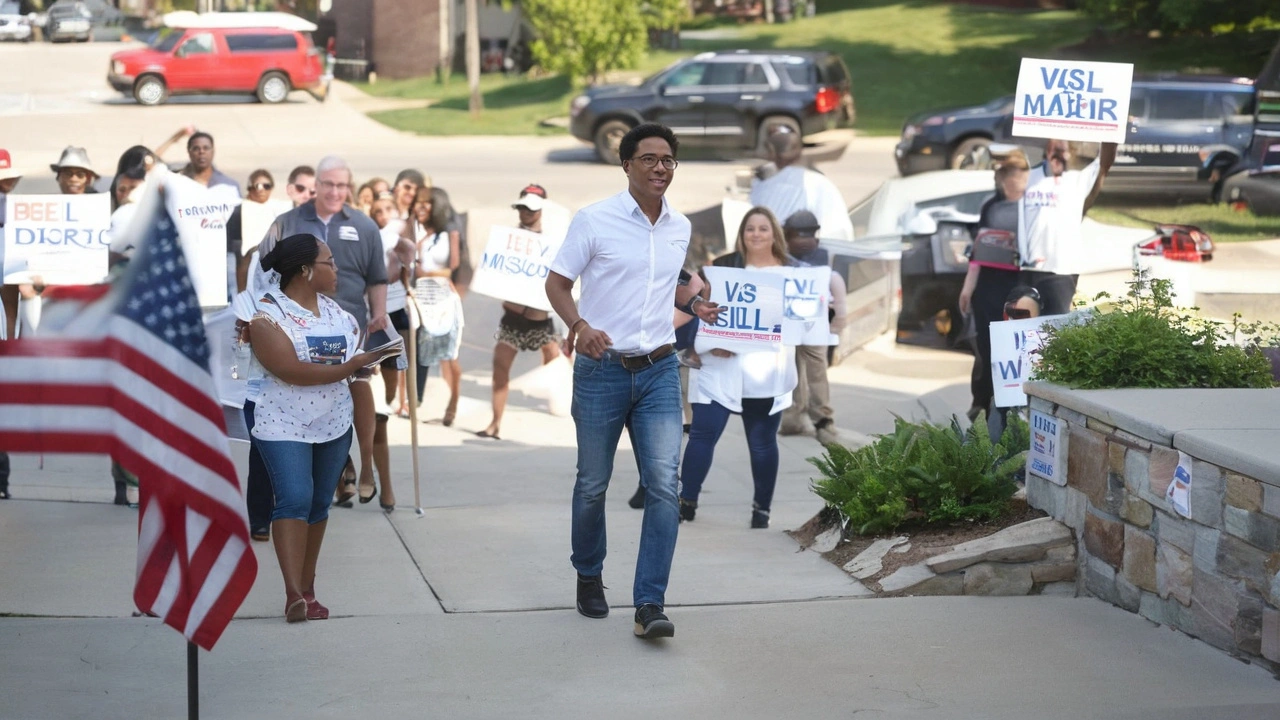- New Memoir Exposes Shocking Allegations Against Sean 'Diddy' Combs: Control, Cheating, and Abuse Sep 22, 2024
- Comprehensive List of 2024 Paris Olympics Medal Winners: Daily Updates and Highlights Jul 28, 2024
- Anonymous Warns Kenyan Government: Scrap Finance Bill 2024 or Face Online Uprising Jun 20, 2024
- Eminem's 'Houdini' Drops with Bold Celebrity Mentions and a Thematic Music Video Jun 1, 2024
- Colombia's Dominant Victory Over Costa Rica in Copa América Seals Quarterfinal Spot Jun 29, 2024
Primary election: what it is and why it matters
Heard the term "primary election" and wondered what it really means? A primary election is the process parties use to pick their candidate for the main election. It’s the stage where party members or voters choose who will represent them in local, regional, or national contests. Getting who wins a primary right can shape policy, turnout, and the final result.
Rules vary by country and by party. Some places run open primaries where any registered voter can take part. Other systems are closed: only party members or people registered with the party can vote. Still others use internal party meetings or delegate systems instead of public ballots. Because of that variety, always check the official rules for your area before showing up.
Types of primaries
There are a few common formats you'll see:
Open primary: Any registered voter can vote in any single party's primary without changing party membership. Good if you want flexibility.
Closed primary: Only voters registered with a party can vote in that party's primary. This keeps selection inside the party.
Semi-open/semi-closed: Hybrid systems that require limited registration steps or let voters choose on the day. Details differ widely.
Party-only processes: Some parties hold internal ballots, caucuses, or conventions. These aren’t public ballots and follow party rules.
How to vote and what to watch
Want to actually take part? Here’s a straightforward checklist:
1) Check registration. Confirm your voter registration well before the deadline. If your country allows same-day changes, learn the rules early.
2) Know your primary type. If it’s closed, make sure you’re on the party roll. If open, understand whether you must pick one party’s ballot at the polling place.
3) Prepare ID and documents. Many places require ID or proof of registration. Look up acceptable documents on the official election site.
4) Learn the ballot. Most primaries list candidates, and sometimes party delegates or internal measures. Read short candidate bios or policy summaries so you can decide quickly at the booth.
5) Deadlines and methods. Check early voting options, absentee ballots, or online systems if available. Missing a deadline is the most common avoidable mistake.
6) Watch for misinformation and scams. Confirm voting times, locations, and procedures only from official election bodies or trusted local offices. Social media can spread wrong details fast.
Why show up? Primaries often have lower turnout, so a small group of voters can sway who becomes the nominee. That matters because nominees set campaign tone and policy priorities going into the main election. Your vote in a primary is a direct way to influence who stands for office and what issues get attention.
If you want help finding official election info, your local election commission or party website is the best place to start. Check them a few weeks before voting day, so you don’t miss anything important.
Wesley Bell Defeats Cori Bush: Impact on Missouri's 1st District and Beyond
- Katlego Sean Mahaye
- Aug 8, 2024
Wesley Bell's victory over Cori Bush in Missouri's 1st District primary has sparked discussions on race and geopolitical tensions. Amidst allegations of racism in Bell's campaign, the election took place against a backdrop of international conflicts, including heightened strife in the Middle East and significant diplomatic developments.
